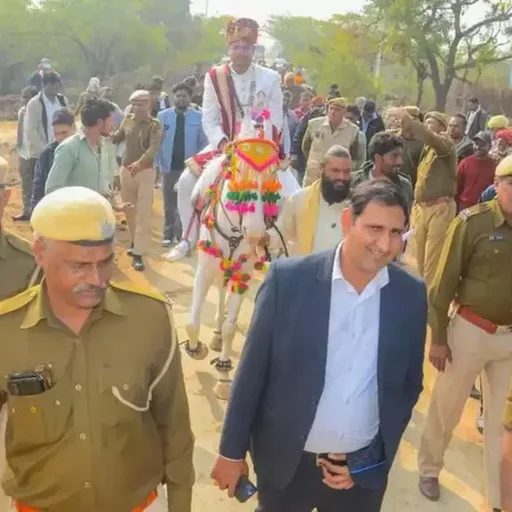Even after 77 years of independence, caste discrimination remains a significant issue in some parts of India. A recent incident in Laveravillage, located in the Ajmer district, illustrates this ongoing problem. Vijay Bakolia, a Dalit groom, needed a police escort for his wedding procession, highlighting the deep-seated inequalities that persist.
On Tuesday, Vijay rode a horse for 8 kilometers, a traditional practice in Indian weddings. However, this was not a typical wedding procession. Seventy-five police officers accompanied him, actually outnumbering the wedding guests. The large police presence was necessary to ensure the wedding proceeded without any violence and followed all customs safely. This situation shows that even basic traditions can be challenging for some.
Vijay’s father, Narayan Raigar, had requested police protection due to concerns about possible violence related to caste. Unfortunately, this isn’t a new issue for the family. In 2005, Narayan himself faced similar obstacles when he tried to have his own wedding procession. The police presence underscores the harsh reality of caste discrimination, particularly for Dalit people living in rural areas of India.
While India has made progress toward equality, some deeply ingrained traditions continue to reflect old societal prejudices. The need for a large police escort for a wedding procession clearly demonstrates that the threat of violence related to caste is still very real. It also reveals that simple traditions, like a groom riding a horse to his wedding, are not always safe or available to everyone.
Narayan Raigar’s statement, “We just wanted the wedding to take place peacefully,” speaks volumes about the continued struggle for equality. This event serves as a powerful reminder of the ongoing fight against caste discrimination and the importance of ensuring equal rights and safety for all citizens.
